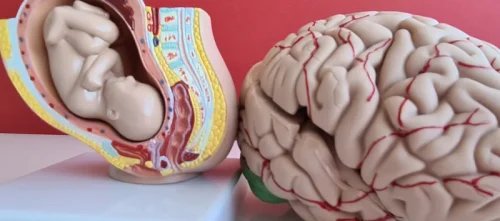Helping a High-Functioning Alcoholic in Denial
Help is available through various sources, including talking to a healthcare provider, mental health or substance use professional, and support groups. Living with someone in active addiction affects every aspect of life—from work to finances, physical well-being to relationships with family and friends. Ignoring or denying the difficult and painful consequences of alcohol addiction will only make things worse. In fact, by the time families reach out for help with a loved one’s alcoholism, the disease may have progressed to a crisis level involving an accident, lost job, arrest or medical emergency. The short-term effects of alcohol abuse can make people prone to violent behavior, injuries and accidents. These concepts are complex and likely to develop in response to widely held societal beliefs as well as mechanisms reflecting an individual’s traits regarding how they handle problems and their specific beliefs and behaviors.
Moving from denial toward meaningful change
- Explore the hidden mental effects of alcohol, from cognitive impairment to sleep disruption.
- “Have a warm and empathetic conversation in an environment without distractions,” Scholl says.
- A person may consciously or unconsciously engage in addiction denial because they are struggling to accept the reality of their behavior.
- “For starters, the media, our workplaces, and many social circles normalize drinking to excess,” says Ruby Mehta, a clinical social worker and director of clinical operations at Tempest.
- People with AUD are likely to employ denial because admitting that alcohol has become a serious problem can be incredibly difficult.
- The authors offer suggestions regarding how to identify those drinkers in need of advice regarding dangers of their behaviors.
We also aim to make recommendations for areas that should be targeted by policy and practice initiatives. We’re passionate about our evidence-based practices and always move forward with a patient-focused approach. We know that every person who walks through our doors is unique, which is why we never stick to a one-size-fits-all treatment plan. With our full continuum of alcoholism treatment care, we’ll work together to set you up for long-term success. Recovery is already a hard topic to approach, even without alcoholism denial.
The Four Stages of Addiction Denial
This makes people more sensitive, which raises the chance of accidents and falls. Thus, even moderate drinking can result in more excellent blood alcohol content (BAC). It follows that their why are alcoholics in denial perception of alcohol’s effects is quicker and lasts longer. Since alcohol dissolves in water, your blood alcohol content (BAC) will rise if you drink more quantity but have less water.
Top aides shielded Biden from staff, but couldn’t hide the debate
SRE-T scores reflect the average across first five, heaviest drinking period, and recent 3-month drinking. Higher average drinks needed for effects indicates lower response per drink and higher future risk for alcohol problems (Daeppan et al., 2000; Ray et al., 2010; Schuckit, 2018a; Schuckit et al., 2019 a, b). As probands’ biological children reached age 18, they were personally interviewed every five-years using SSAGA-based questions. The first interview following their 18th birthday included the impulsivity and sensation seeking questionnaires, and, for those with experience with drinking, the SRE. Sixty-seven percent of 94 AUD probands and 82% of 176 AUD offspring reported themselves as light or moderate social drinkers despite averages of up to 12 maximum drinks per occasion and four DSM problems.
At this point it was evident that most of the codes related to how implementation contexts and mechanisms were felt to adversely affect provision of support for patients with AUD. In contrast, we found negligible data related to the third NPT domain of outcomes (i.e. what changes occur when interventions are implemented). It was therefore agreed that applying the context and mechanisms domains could be valuable to show how contexts and mechanisms limit the implementation of the phenomena of interest. For transparency however, data not included at this stage is indicated in Additional file 2. Alcoholism denial can be a defense mechanism because a person doesn’t want to feel like they’re doing something wrong. They’ll deny it so others don’t have a chance to see them in a negative light, so they don’t have to look inward and question the choices they’ve made throughout their life.
It’s important to support individuals in this stage by providing them with information and resources to help them make an informed decision. Differentiating behaviour in someone with a drinking problem can be challenging. Signs of denial may include minimising or rationalising their drinking, avoiding conversations about it, or becoming defensive.
- It’s crucial to identify and treat any underlying mental health conditions that may be contributing to the addiction.
- Often, this is due to factors such as shame and fear, but it can also be because people genuinely do not accurately see or understand how their drinking has become unhealthy.
- Master how to avoid alcohol and gambling triggers, defend your recovery, and outsmart addiction today.
- Unlike substances like heroin or methamphetamines that are widely stigmatized, it’s easier for individuals with an alcohol use disorder to rationalize their behavior due to its social acceptability.
- In contrast to staff in other departments, as mentioned above, staff from PL teams suggested that identifying patients’ patterns of alcohol use, usually through formalised screening, had relatively recently become part of their core work.
- Alcohol may be a big part of their social life and friendships, or a coping mechanism for trauma, mental health issues, and severe stress.
Hitting Rock Bottom and Finding Alcohol Treatment: The Turning Point
Addiction Resource aims to provide only the most current, accurate information in regards to addiction and addiction treatment, which means we only reference the most credible sources available. One of the most supportive things a friend, family member, or coworker can do for a high-functioning alcoholic is to acknowledge the alcohol problem and the need for an alcohol treatment program. Loved https://ecosoberhouse.com/article/how-alcohol-affects-your-kidneys/ ones sometimes protect the person who is experiencing an alcohol problem, making excuses for their poor behaviors and failure to manage responsibilities. Oftentimes, enablers are family members who are attempting to protect the person with the alcohol problem. Binge or heavy drinking can wreak havoc on a person’s love life, work responsibilities, and in some cases, result in legal problems.
- Setting achievable goals that align with your values and priorities can help you stay motivated and focused on the recovery process.
- People with AUD often deny they have an unhealthy relationship with alcohol.
- Higher average drinks needed for effects indicates lower response per drink and higher future risk for alcohol problems (Daeppan et al., 2000; Ray et al., 2010; Schuckit, 2018a; Schuckit et al., 2019 a, b).
- Out of love and concern, family and friends may often unintentionally enable or make excuses for their loved one’s drinking behavior.
- Semi-structured qualitative interviews were conducted with 30 non-alcohol specialist staff (10 doctors, 20 nurses) in eight secondary care hospitals across the NENC between June and October 2021.
Or, they get bombed every weekend but don’t skip a beat at their demanding job. If you feel that any of our content is inaccurate, out-of-date, or otherwise questionable, please contact at
Alcohol Withdrawal: Symptoms, Treatment, and Prevention
- In this article, we will explore the tell-tale signs of denial in alcoholism, provide guidance on how to help an alcoholic loved one and emphasise the importance of seeking support for yourself during this process.
- Help is available through various sources, including talking to a healthcare provider, mental health or substance use professional, and support groups.
- Someone might say, “Yeah, I drink every weekend, but at least I’m not like John, who drinks alone every night.” By pointing out the extreme behavior of others, individuals in denial try to diminish the seriousness of their own alcohol misuse.
- It’s a family meeting—often facilitated by a professional who understands what it takes to motivate someone to enter treatment.
- Take time for yourself and engage in activities that bring you joy and relaxation.
- “We see a lot of teens with depression and substance use disorders, and some parents deny there are problems because they’re afraid of what it means for the child. It comes from a place of worry,” Scholl says.










